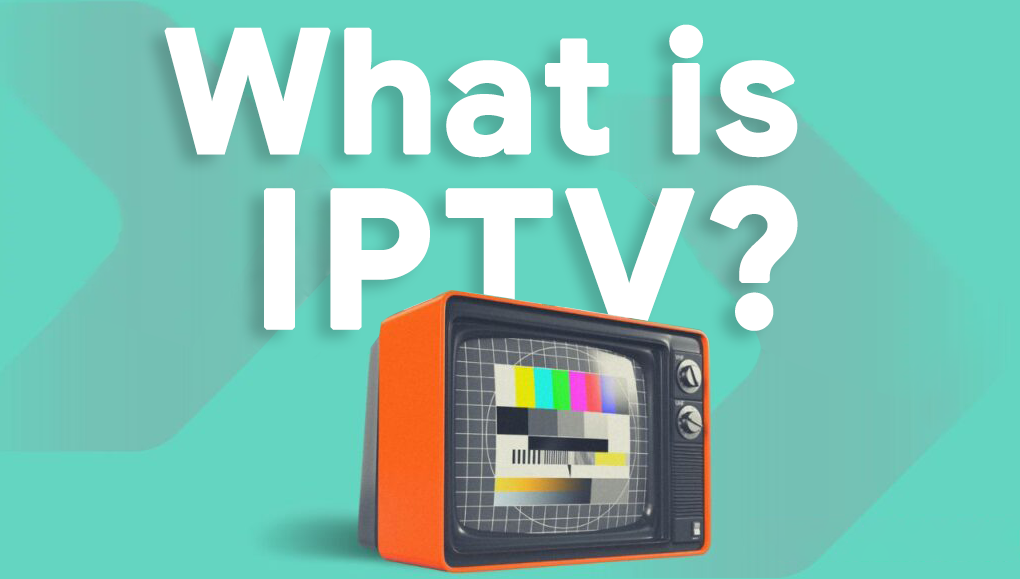Cut the Cord With IPTV: Access More Networks and Web Content Effortlessly
In an age where traditional wire registrations are increasingly deemed difficult, IPTV becomes a compelling choice, offering a diverse choice of networks and on-demand content without the restraints of long-lasting commitments. This technology not only boosts the checking out experience by supplying accessibility to a broader series of shows yet also streamlines the process of content consumption across numerous tools. As consumers look for even more versatility in their home entertainment options, recognizing the systems and benefits of IPTV becomes crucial. What ramifications might this change have for the future of television consumption?
What Is IPTV?
IPTV, or Web Method Television, represents an advanced technique to tv broadcasting that utilizes web methods to deliver content over a network. Unlike traditional tv approaches, which count on satellite or cord facilities, IPTV sends shows with broadband connections, enabling a more versatile and flexible checking out experience.
The core of IPTV modern technology lies in its ability to stream sound and video content online. This makes it possible for customers to access a varied array of channels and on-demand shows directly via their internet-enabled devices, such as clever TVs, computer systems, mobile phones, and tablet computers. By leveraging existing web links, IPTV gets rid of the requirement for bulky hardware and complicated setup processes usually related to conventional cable systems.
IPTV services can be classified right into three main types: live television, time-shifted tv, and video clip on need (VOD) Real-time tv permits individuals to enjoy networks in real-time, while time-shifted television gives the option to watch formerly broadcast content. VOD allows customers to choose and view particular programs at their benefit. In general, IPTV represents a considerable shift in just how customers access and enjoy tv content.
Benefits of Reducing the Cable
The shift away from traditional cable tv, frequently referred to as "cutting the cable," has become significantly interesting customers looking for better flexibility and cost financial savings. Among the main advantages of this shift is the significant reduction in monthly costs - Iptv. Lots of IPTV services use affordable rates compared to cable television packages, allowing customers to pay just for the channels and web content they prefer
Furthermore, cutting the cable provides unmatched access to a diverse variety of channels and on-demand material. Subscribers can pick from numerous IPTV carriers that deal with details interests, whether that's sporting activities, news, or specific niche programming. This customization boosts the viewing experience, guaranteeing users only involve with material they truly enjoy.
Moreover, the benefit of streaming on numerous tools-- such as smart devices, tablets, and wise TVs-- implies that customers can view their favorite shows anytime and anywhere. This level of ease of access is particularly advantageous for those with busy way of lives.
Finally, with no long-lasting contracts or hidden charges, customers take pleasure in a feeling of freedom and control over their amusement choices - Iptv. In general, cutting the cable not site link just advertises cost effectiveness yet likewise fosters an extra adaptable and personalized watching experience
Exactly How IPTV Works
As viewers increasingly welcome options to typical wire, recognizing the mechanics behind Internet Protocol Tv (IPTV) comes to be paramount. IPTV delivers tv programming through web methods rather of traditional satellite or earthbound approaches. This modern technology makes use of broadband connections to transfer video content, enabling real-time streaming and on-demand viewing.
The core of IPTV hinges on its ability to convert video signals right into electronic information packets, which are then sent out over the net. These packages are sent making use of Web Procedure, allowing seamless shipment to different tools, including smart Televisions, tablets, smart devices, and computer systems. Unlike traditional broadcasting, IPTV provides a much more customized watching experience, permitting individuals to select material from a vast library.
In addition, IPTV utilizes a client-server design, where the web server shops the web content and the client tool fetches it upon request. Generally, IPTV stands for a considerable development in content shipment, lining up with the expanding need for flexibility and access in modern viewing behaviors.
Picking the Right IPTV Solution
When selecting an IPTV service, what crucial aspects should consumers consider to ensure browse around this site they obtain the ideal worth and experience? Network choice is crucial. Different carriers use differing bundles, so it's vital to recognize solutions that consist of wanted networks, such as neighborhood broadcasts, sports networks, and international choices.
Another essential element is the top quality of streaming. Seek solutions that give high-def (HD) or perhaps 4K material, together with a trusted connection that decreases buffering and lag. Equally essential is the interface; a smooth, user-friendly user interface can substantially boost the seeing experience.
Pricing frameworks must also be checked out. Some carriers may supply appealing initial rates yet include hidden charges or call for long-lasting agreements. Opt for a solution that uses clear pricing and versatile registration options.
A responsive assistance group can deal with issues promptly, making sure continuous solution. By evaluating these elements, customers can make an educated choice and select the IPTV solution that best satisfies their entertainment needs.

Obtaining Started With IPTV
Understanding the key consider selecting an IPTV service lays the foundation for a smooth initiation into the globe of IPTV. To start with, analyze your net link; a minimal rate of 10 Mbps is usually advised for high-definition streaming. Next off, explore the readily available IPTV suppliers, concentrating on their channel offerings, server reliability, and customer evaluations click over here to gauge overall contentment.

After establishing your device, download and install the IPTV application and visit using your account qualifications. Familiarize on your own with the interface, as this will boost your viewing experience. Furthermore, explore the different attributes offered by the service, such as video-on-demand, catch-up TV, or digital program overviews.
Final Thought
In recap, IPTV represents a transformative method to tv viewing, allowing access to a wider series of channels and web content without the restraints of traditional cable services. The versatility and ease offered by IPTV accommodate diverse viewer choices, improving the general enjoyment experience. By understanding the procedure and benefits of IPTV, customers can make educated decisions when choosing the proper service, inevitably bring about a much more gratifying and adjustable seeing experience.
In a period where traditional cord subscriptions are progressively watched as troublesome, IPTV emerges as a compelling option, supplying a diverse choice of networks and on-demand content without the restrictions of long-term dedications. Generally, IPTV stands for a substantial shift in exactly how consumers access and enjoy television material.
Lots of IPTV services provide competitive prices compared to cable television packages, enabling individuals to pay just for the networks and material they prefer.
Understanding the vital aspects in choosing an IPTV solution lays the structure for a smooth initiation right into the world of IPTV.In summary, IPTV stands for a transformative approach to television watching, making it possible for accessibility to a more comprehensive range of networks and web content without the constraints of conventional cable services.